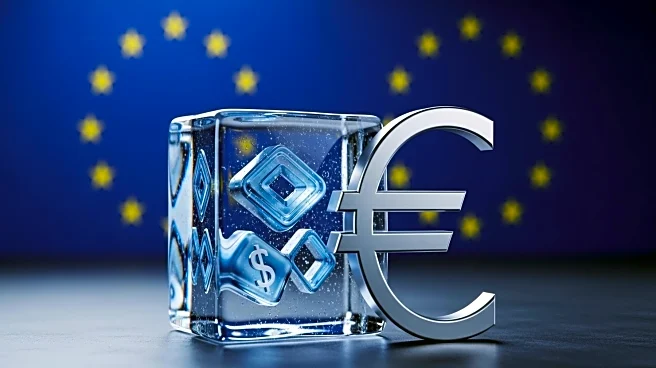What is the story about?
What's Happening?
The European Union is contemplating using frozen Russian assets to provide a €140 billion loan to Ukraine. This proposal is contingent on Russia paying reparations for its war against Ukraine. The plan aims to send a strong signal to Russia that Ukraine is financially supported and can sustain a prolonged conflict. The EU's consideration comes amidst ongoing economic pressure on Russia, including sanctions from multiple countries. The Russian economy has been affected by these sanctions, with military spending remaining high and economic growth slowing down.
Why It's Important?
The potential use of frozen Russian assets to fund Ukraine represents a significant escalation in economic measures against Russia. It underscores the EU's commitment to supporting Ukraine in its defense against Russian aggression. This move could further strain Russia's economy, which is already facing challenges such as high inflation and interest rates. For Ukraine, securing such financial support would enhance its ability to purchase weapons and sustain its military efforts. The decision also reflects broader geopolitical dynamics, as Western nations seek to increase pressure on Russia to change its course in the war.
What's Next?
If the EU proceeds with the loan, it could lead to increased tensions between Russia and Western countries. Russia may retaliate with countermeasures, potentially impacting global energy markets, given its role as a major oil and gas exporter. The EU's decision could also influence other countries to adopt similar strategies, using frozen assets to support Ukraine. Additionally, the move may prompt discussions on the legal and ethical implications of using frozen assets for such purposes.
Beyond the Headlines
The use of frozen assets raises questions about international law and the precedent it sets for future conflicts. It could lead to debates on the balance between punitive economic measures and diplomatic solutions. The decision also highlights the role of economic warfare in modern conflicts, where financial strategies are used alongside military actions to achieve political objectives.
















